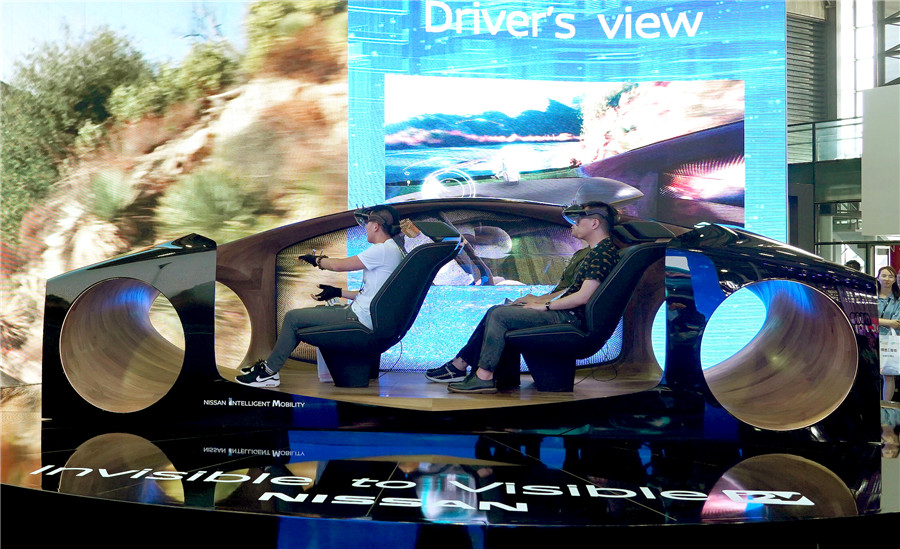New vehicle technology sees renewed interest from Chinese consumers
By He Wei in Shanghai | China Daily | Updated: 2019-06-13 09:11

Chinese consumers are exhibiting a notably greater willingness to embrace new vehicle features such as autonomous driving, connectivity and electrification than their counterparts throughout the Asia-Pacific region, according to the latest survey released by global consultancy Deloitte.
More than 80 percent of the surveyed consumers in China said traveling in a fully autonomous car is a "positive experience", Deloitte said in its 2019 Global Automotive Consumer Study. This contrasted with the overall stalled interest in consumer perception across the Asia-Pacific region, as people were deterred by reports of accidents in the past year.
Connectivity has been rated as a priority as people purchase new cars in China. Nearly 80 percent said they embrace and value the idea of vehicle connectivity, dwarfing Japan's 36 percent and Australia's 44 percent.
And Chinese consumers are not hesitant about paying for such a service, with more than 90 percent expressing their willingness to pay a premium for a vehicle that can communicate with other vehicles and road infrastructure to improve safety.
"Even from 2017 to 2019, we've seen a huge jump. Chinese customers are much more open than the rest of the world to have different ways of propulsion," said Marco Hecker, Deloitte China automotive sector leader. "Connectivity is really the driver of decision-making (in car purchases)," he said.
Several factors are at play, Hecker noted, including the high level of internet penetration, more openness toward data sharing, and the development of key infrastructure such as 5G that stands to boost vehicle connectivity.
"5G is going to be the key enabler for vehicles and autonomous connectivity. And China is pretty much advanced when it comes to 5G and it will continue to invest and push forward in those leading technologies," he said.
"If you look at the operating systems in cars, for example the Yun-OS, it's in the market, and it's not within one original equipment manufacturer. China is the most advanced market when it comes to connectivity and customer experience in-vehicle and outside of the vehicle," he said.
Vehicle technology has dominated the ongoing Consumer Electronics Show Asia in Shanghai, where more than 60 global automotive brands are in attendance including Audi, Honda and Hyundai, constituting the event's largest-ever vehicle technology footprint, according to Wu Jianghong, general manager of Shanghai Intex Exhibition Co Ltd, a key organizer of the event.
German auto giant Volkswagen has joined forces with Beijing-based Mobvoi for its debut at the show highlighting AI-powered future cars. Inceptio Technology is another first-time exhibitor demonstrating next generation self-driving technologies for trucks and transportation services.
Audi has spun out a new company called Holoride that aims to bring a virtual reality experience to the backseat of every car. Part of the magic is that what users view through their VR headsets is matched with the movement of the vehicle.
The company is looking to have a software development kit out soon so that it can share with content and game developers, meaning that it is an open platform which they can leverage to customize other services.
"Cars are increasingly viewed as a high-tech device rather than merely a means of transportation," said Wu. "This is increasingly fueled by the advent of 5G, artificial intelligence and internet of things technologies."
Hecker also predicted that battery electric vehicles will dominate China's passenger car market and lead new energy market development with fuel cell vehicles.
Smart, connected functions are set to overtake hard features such as e-range and charging convenience as the primary factors in purchase decisions, and new retail models including direct sales are poised to challenge the traditional dealership model, he said.
























